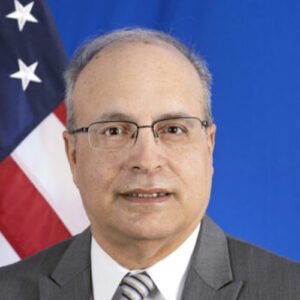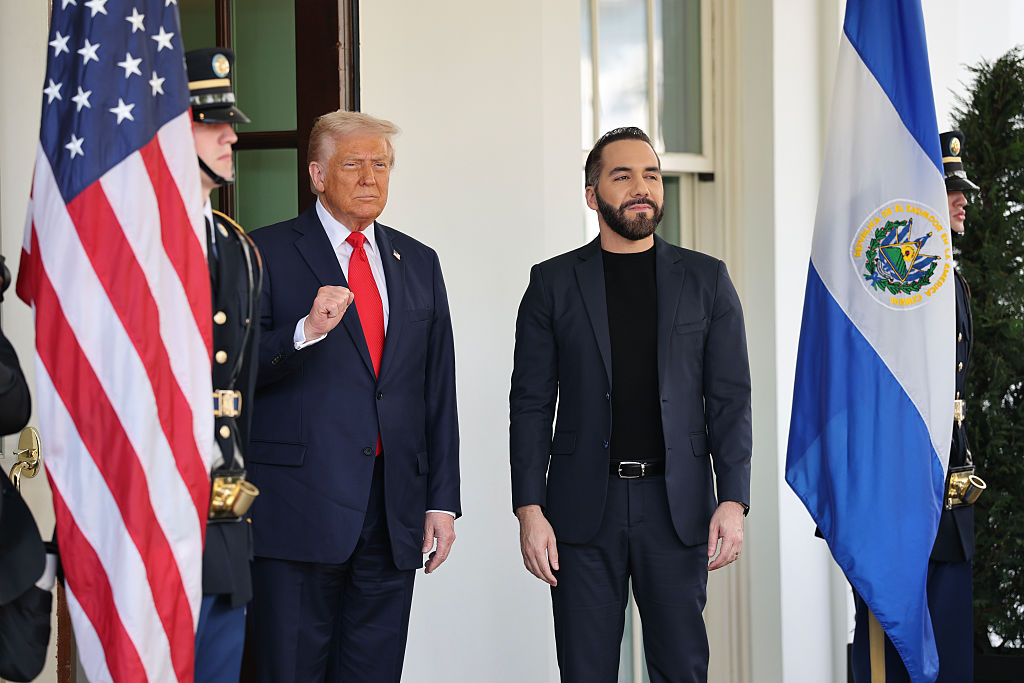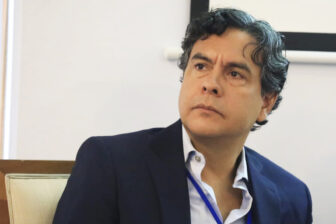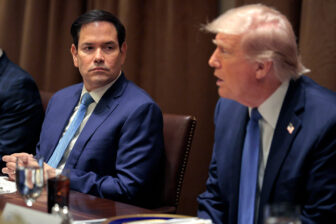
Five months into President Donald Trump’s second term, decades of bipartisan U.S. human rights policies toward Latin America have officially vanished. A “my way or the highway” migration-first approach dominates his administration, prioritizing short-term deals over democratic values and fundamental freedoms. This is likely to spark more instability—and thus accelerate migration—in the region as the U.S. abandons efforts to combat repression, corruption, and institutional decay.
The break in bipartisan consensus is exemplified by how the first Trump administration, like former President Joe Biden’s government, supported Temporary Protected Status (TPS) for Venezuelans—only for Trump 2.0 to reverse course, even as Secretary of State Marco Rubio continues to denounce the Nicolás Maduro regime.
During his first term, Trump officials used human rights terminology mainly to criticize countries like Venezuela and Cuba. Then-Secretary of State Mike Pompeo and other officials justifiably condemned Maduro’s dictatorship and endorsed democratic opposition leaders, while announcing economic sanctions against other leftist dictatorships. The administration focused its attention on specific cases rather than adopting a universal approach, granting leniency to leaders who maintained both ideological alignment and strategic value, despite mounting evidence of democratic erosion and human rights violations.
The Trump administration turned a blind eye when, for example, El Salvador’s President Nayib Bukele deployed military personnel to occupy the National Assembly in February 2020 to demand approval of a credit line for his crime-fighting program, and when Brazil’s former President Jair Bolsonaro repeatedly inveighed against journalists—labeling them enemies—and intimidated political opponents, judges and members of civil society.
Human rights served as an instrument of foreign policy during the first Trump administration, but it was used only to attack declared adversaries. The administration used its irregular human rights stance to create a public image of democratic devotion, although the commitment remained shallow.
That pretense is now gone.
A changing landscape
To date, the new Trump administration has made no significant statements regarding human rights in the Western Hemisphere. It has launched no new programs, no diplomatic missions, and shown no real support for pro-democracy movements in El Salvador or Venezuela—even as anti-corruption officials flee, constitutional checks are dismantled, civil society faces legal harassment, and Maduro consolidates power. Worse still, the administration has slashed funding for democracy and human rights initiatives, including the dismantling of much of USAID’s regional work.
U.S. foreign policy now centers on border control, drug trafficking, migration agreements, and trade disputes. Border control and security dominate public declarations and budget allocations, with no mention of human rights, which are not just ignored, but deliberately excluded from consideration. For example, the credible and impartial State Department Human Rights reports have now been revised to omit references to issues like prison conditions, political corruption, violence, discrimination against LGBTQ+ people, and restrictions on participation in the political process.
Structural changes at the State Department reinforce this trend. The Bureau of Democracy, Human Rights, and Labor (DRL)—once a pillar of U.S. support for civil society and rights monitoring—was downgraded early this year. Seasoned diplomats have been reassigned away from their human rights portfolios, and funding to the National Endowment for Democracy and its key partners, IRI and NDI, has been slashed. The implications are profound.
Threats to democracy in Latin America
El Salvador is an illustrative example of a country undergoing democratic erosion, largely driven by President Nayib Bukele, who has been emboldened and shielded by the Trump administration in exchange for receiving and incarcerating deportees in its maximum-security prison without due process. Bukele’s “state of emergency,” in force since in March 2022, appears to have become permanent, contributing to the erosion of constitutional rights, arbitrary detentions, consolidation of control over nearly all institutions, and the harassment—and even threats of arrest—against journalists.
The State Department’s response has been strikingly at odds with these developments: Last month, it certified that the Salvadoran government is strengthening the rule of law and protecting human rights defenders and journalists. The May 18 arrest of lawyer Ruth Eleonora López of Cristosal, a leading human rights advocacy group in the country, contradicts this narrative.
Recent efforts to undermine judicial independence and restrict civil society—particularly targeting journalists—have expanded to other countries in the region, also without a single comment from the Trump administration. In Peru and Paraguay, legal sanctions against NGOs and the erosion of anti-corruption mechanisms serve as clear warning signs. In Honduras, the government has created a climate of fear, where human rights defenders and journalists face threats and intimidation for exposing arbitrary detentions, excessive use of force, and government corruption. The Trump administration has remained silent in response to these threats to democratic principles or institutions.
Consequences for U.S.-Latin America relations
The administration’s policy of ignoring human rights undermines its ability to lead morally and simultaneously damages its fundamental long-term strategic advantages. A region that faces repression alongside corruption and institutional decay becomes inherently unstable. Civic space restrictions, together with suppressed dissident voices and diminished rule of law, operate as fundamental elements that create migration patterns, undermine trade and investment opportunities, and fuel violence and other transnational security challenges. Indeed, it is the U.S.’s upholding of international, democratic rules of the road that often makes partnering with it preferable to partnering with its geopolitical competitors.
Disengagement contributes to the U.S.’s growing diplomatic isolation. Developing an effective, interest-based human rights policy requires a sustained and collaborative approach—one that engages multilateral or regional organizations, civil society, and governments alike. Such a policy requires a consistent commitment, humility, and the willingness to deliver difficult messages, even to allies. The protection of democratic values must be the core objective, not a selective tool used to discipline adversaries. Adopting this approach would bolster U.S. credibility, foster new partnerships, and promote long-term stability across the region.
Yet the evidence of such a commitment is absent. The Inter-American Democratic Charter, once a cornerstone of regional democratic solidarity bolstered by U.S. support, is now fading. Last year, the Organization of American States launched efforts to strengthen it, which have stalled due to a lack of U.S. leadership. Revitalizing that initiative is critical if the Charter is to remain relevant.
This administration’s current path will have permanent effects on the region. Authoritarians will feel emboldened. Democratic institutions will falter. Civil society will be pushed to the margins. The U.S. will lose trust from its neighbors and decrease its respectability and security throughout the Western Hemisphere.
Meaningful progress requires more than symbolic gestures. Real and meaningful support for democracy and human rights means sustained, collaborative, and non-ideological diplomacy—regardless of political convenience.
Silence in moments like these is not neutrality; it is complicity.









